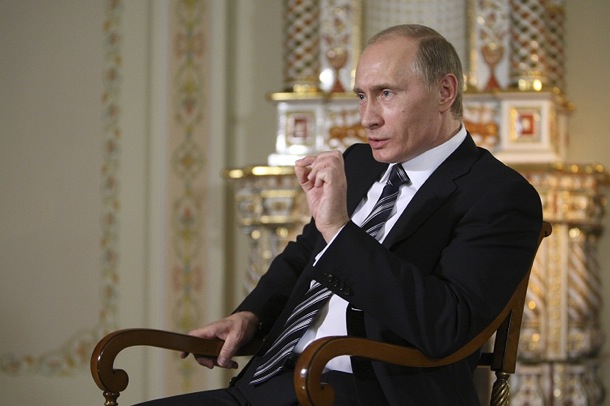Norway should criticise crackdown against opposition leaders and human rights activists in the Russian Federation
Foreign Minister Jonas Gahr Støre,
The Norwegian Helsinki Committee is concerned with recent developments in the Russian Federation related to the on-going crackdown against opposition leaders and human rights activists, as well as the adoption of restrictive legislation on public rallies.
We ask you to raise these issues both in relevant multilateral forums as well as in bilateral meetings with Russian authorities. We urge you to contribute to a strong European reaction to these developments, which go counter of core values and standards agreed to by European states.
Both the 4 December 2011 Duma elections and the 4 March 2012 Presidential elections were met by massive popular protests, stating that the elections were characterised by widespread fraud and demanding democratic reforms. A fear, however, that Russian authorities would adopt measures to limit such protests as soon as the electoral period finished and Vladimir Putin was reinstalled as President now seems increasingly to be fulfilled. President Putin pledged to inspire “greater participation of citizens in public affairs” and to have “more consultations with different sectors of society about legal reforms” on the day of his inauguration. Recent developments stand in sharp contrast to these words.
A few examples may illustrate the direction of these developments. Authorities searched the homes of well-known opposition leaders, such as Alexei Navalny, Sergei Udaltsov, Ilya Yashin, Boris Nemtzov, Evgenija Chirikova, and Petr Verzilov, ahead of yesterday’s anti-government rally in Moscow. Some of them were also summoned for questioning by the police at the time scheduled for the rally, seemingly in an effort to prevent them from taking part. Several independent news websites went down just before the rally started, apparently due to coordinated attacks by hackers. In addition to targeting well-known opposition figures, the police has also arrested and placed in detention or house arrest several other less known activists, such as Rikhard Sobolev, Vladimir Akimenkov, Oleg Archipenkov, Fedor Bakhov, Aleksandr Kamenskij, Andrey Barabanov, Maksim Lysjanin, Mikhail Kosenko, Stepan Zimin, Denis Lutskevich, Jaroslav Belousov, Alexandra Dukhanina. They have all been charged with threatening public order or with violence against the police during the 6 May 2012 mass demonstrations at Bolotnaya Square, Moscow, which turned violent. They face up to eight years imprisonment.
A legislative package, stipulating heavy penalties for violating regulations related to public rallies, was rushed through Parliament on 5 and 6 June. President Putin signed the amendments into law on 8 June, stating that the law will protect Russian nationals from radicalism and that it was not more restrictive than prevailing European Norms. The law increase the maximum penalty for individuals from 1000 rubles (US$60) to 300 000 rubles (US$9000) for violating the rules on public events. Legal entities risk a penalty of 1 million rubles (US$30 000). Organisers of public meetings would face large fines if participants cause disorder or damage. Organising unsanctioned gatherings, regardless of whether they cause any disturbance, is also penalised (up to US$1500). Importantly, anyone found responsible for violating the rules for public events at least twice may even lose their right to organise demonstrations.
Also events like the 13 May “writers’ stroll”, a walk of thousands of people who refrained from chanting slogans or carrying posters, may be covered by the new legislation. The right to freedom of assembly has increasingly been under attack by Russian authorities. Peaceful rallies by the political opposition and/or civil society activists are often dispersed by the police, sometimes using unnecessary excessive force. According to law, organising a public rally only requires notification of the local authorities. However, in practice organisers are often met with bureaucratic hurdles or their requests are turned down by the authorities.
Such policies and legislation are clearly violating international human rights norms that protect the right to assembly, freedom of expression, and freedom of organization and peaceful protest. They also contradict the Russian Constitution, which upholds these rights. According to international human rights standards these rights can only be limited in exceptional circumstances, being necessary in a democratic society in the interests of national security or public safety, public order, the protection of public health or morals, or the protection of the rights and freedoms of others. The European Court of Human rights has made clear that freedom of assembly would lose its meaning if a person is subjected to a sanction for peaceful participation in a demonstration that has not been explicitly prohibited for valid reasons.
—
Dear Foreign Minister Jonas Gahr Støre, in your speech on 8 June 2012 on a seminar on human rights defenders in Oslo, you underlined that “protecting human rights defenders is a cornerstone in the Norwegian foreign policy.” You also pointed to “increasing obstacles to freedom of expression and … violent repression of peaceful dissent. New and restrictive laws are being justified by the authorities in the name of security.”
This is exactly what we’re now seeing in the Russian Federation. Norway, as well as other European states, should raise these issues urgently and in clear words.
Sincerely yours,
Bjørn Engesland Gunnar M. Ekeløve-Slydal
Secretary General Deputy Secretary General





